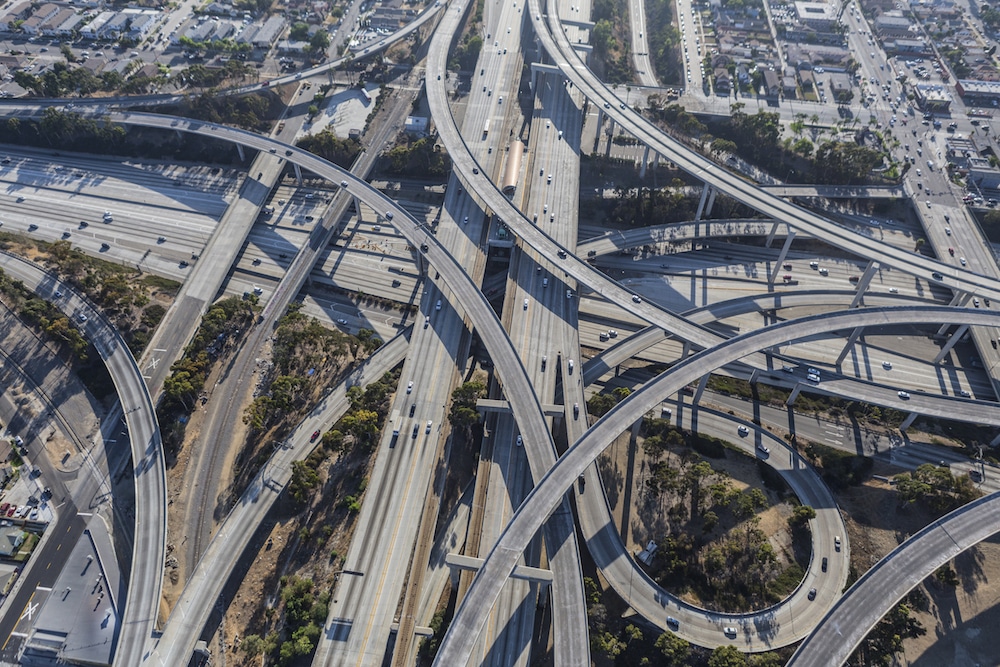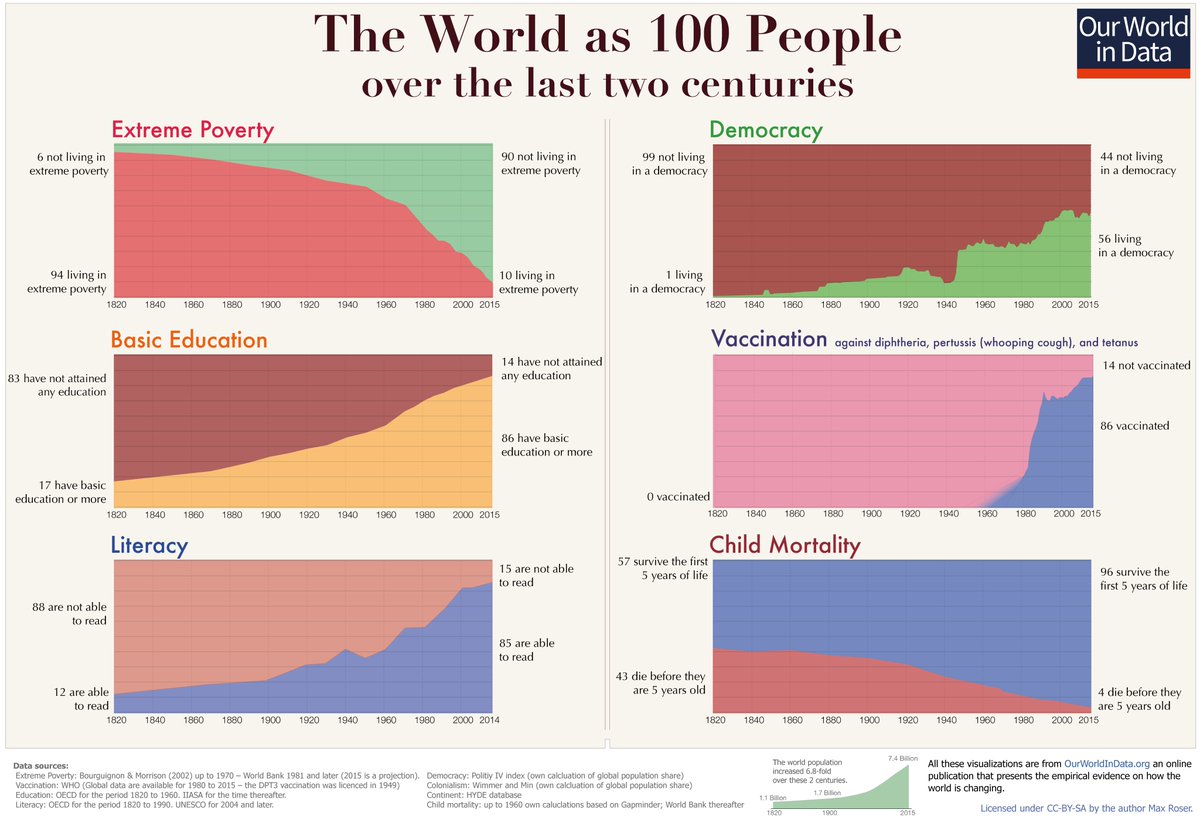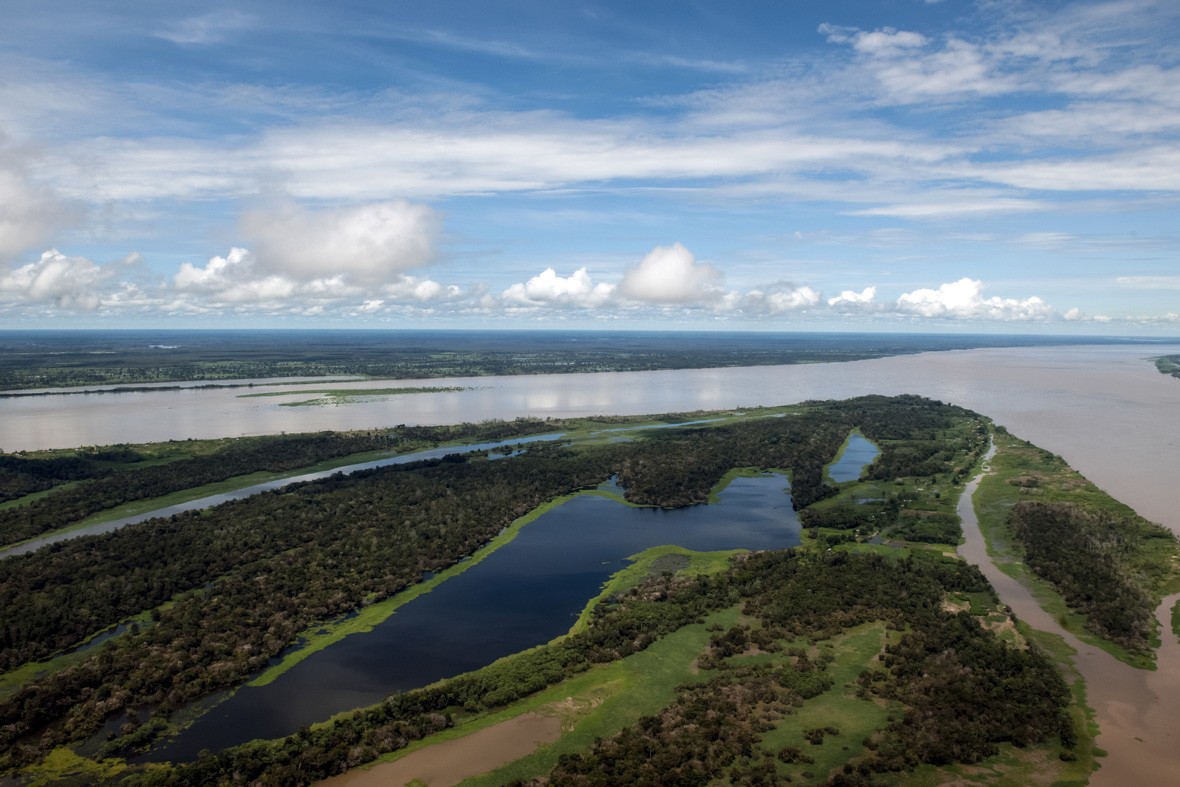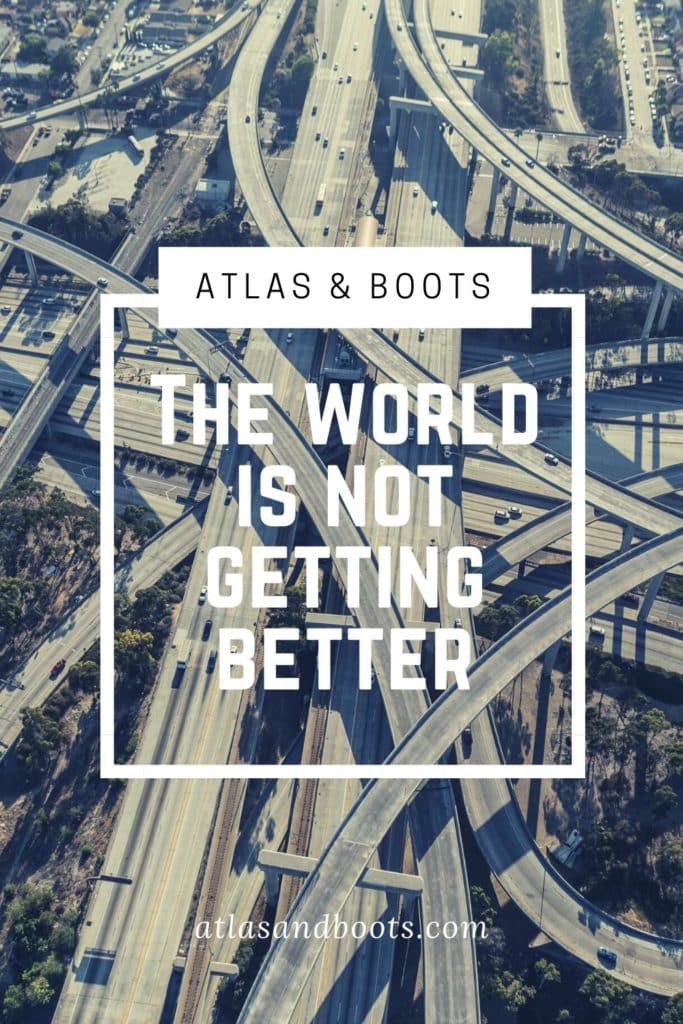Life for humans may be improving but what about everything else that shares our planet?
In trying times, social media users tend to share think pieces, charts and graphics proving that humanity has never had it so good.
These graphics focus on the growth of lovely things like basic education, literacy, democracy and vaccination, and the decline of awful things like extreme poverty and child mortality.
The charts are often accompanied by pithy captions like “awesome proof that humanity hasn’t actually botched it.”
What the captions ignore is that humans are not the only species that matters. The world may be a better place for us, but what of the millions of species that also call Earth their home?
Even the most measured debates about climate change are couched in terms of our lives, our children, our future. Perhaps this solipsism is necessary; perhaps most humans just don’t care about a problem unless it’s creeping in their own shadow or knocking on their own door. There are kids and bills and everyday errands to deal with – who has the capacity to worry about gargantuan problems like climate change?
As we go about our daily business, however, our devotion to obscene consumerism is wreaking slow-creep devastation across the planet.
Loss of wilderness
Last year, scientists revealed that humans have destroyed a tenth of Earth’s wilderness in the last 25 years alone. The study, published in Current Biology, reveals alarming findings about the world’s wilderness (defined by the authors as ‘biologically and ecologically largely intact landscapes that are mostly free of human disturbance’).
The study reveals that an estimated 3.3 million km2 of wilderness has been lost since the early 1990s, 30% of it in the Amazon and 14% in central Africa.
What’s more, three of Earth’s 14 terrestrial biomes now have no globally significant wilderness area remaining. A further five biomes now have less than 10% wilderness remaining.
If current trends continue, there could be no globally significantly wild areas left in less than a century.
The sixth mass extinction
Human activity has ushered in what some scientists call the Anthropocene era, dating from when human activities started to have a significant global impact on Earth’s geology and ecosystems.
The Anthropocene era could culminate in an irreversible mass extinction that would be catastrophic for life on Earth, scientists have warned.
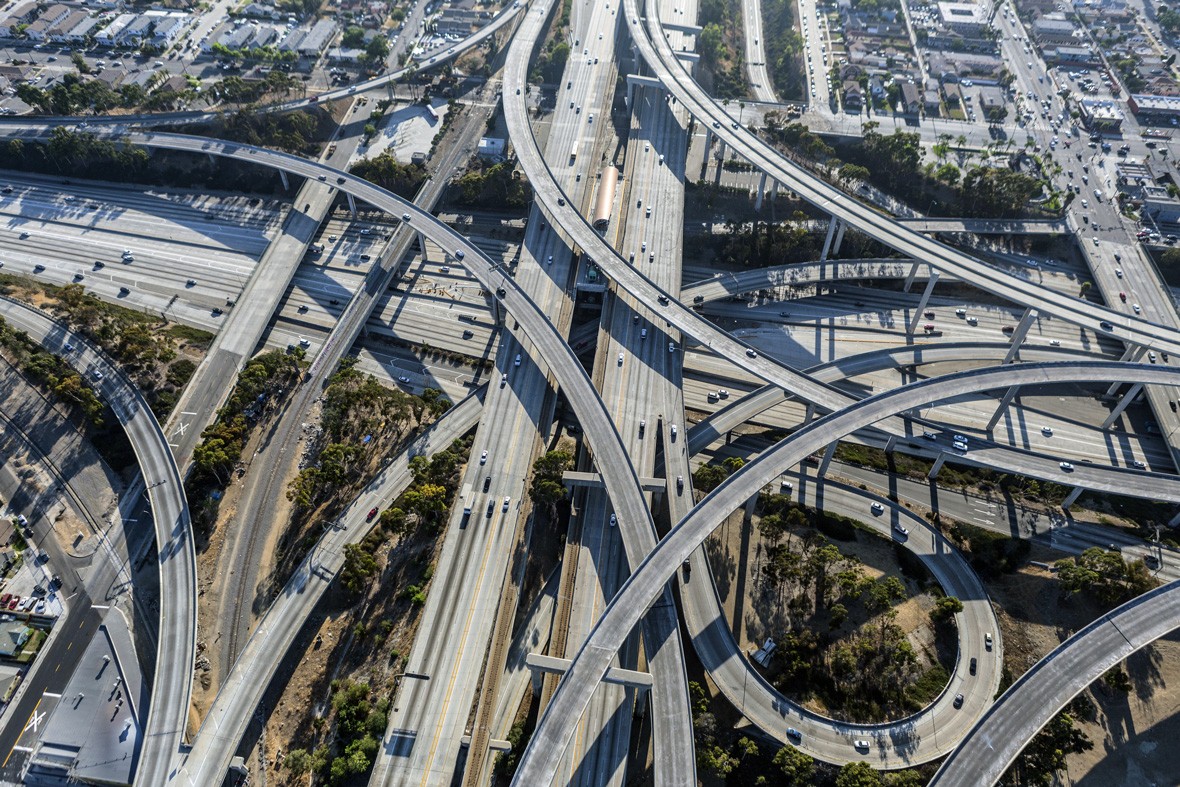
The sixth mass extinction is distinct from the five mass extinctions that preceded it because it would be caused by human actions.
Causes include: the spread of non-native species around the world; human dominance over the world’s primary production; human actions in directing evolution; and modern society’s insatiable appetite for road building (despite its shattering effect on nature) and new technology (despite its toxic effects on the environment).
Increasing temperatures
Last year was the hottest on record since modern record keeping began in 1880.
Earth’s average surface temperature has risen 1.1°C (2°F) since the late 19th century. Most of the warming has occurred in the past 35 years, with 16 of the 17 warmest years on record occurring since 2001.
Not only was 2016 the warmest year on record, but eight of the 12 months that make up the year – from January through September, with the exception of June – were the warmest on record for those respective months. October, November, and December of 2016 were the second warmest of those months on record – in all three cases, behind records set in 2015.
In the same year, Outside Online ran an obituary for the Great Barrier Reef. It starts:
“The Great Barrier Reef of Australia passed away in 2016 after a long illness. It was 25 million years old.
For most of its life, the reef was the world’s largest living structure, and the only one visible from space. It was 1,400 miles long, with 2,900 individual reefs and 1,050 islands. In total area, it was larger than the United Kingdom, and it contained more biodiversity than all of Europe combined. It harbored 1,625 species of fish, 3,000 species of mollusk, 450 species of coral, 220 species of birds, and 30 species of whales and dolphins. Among its many other achievements, the reef was home to one of the world’s largest populations of dugong and the largest breeding ground of green turtles.”
The article is undeniably alarmist, but perhaps stunts like this are necessary to draw the eyes of the world to important but unsexy environmental issues. After all, glaciers melt at glacial pace and no-one has attention spans that long. Perhaps bold stunts can succeed where stats and studies fail.
A need for action
Widespread apathy coupled with political cowardice has set us on a course to environmental catastrophe – and things are set to get worse.
The new president of the US, Donald Trump, believes climate change is a hoax and his cabinet is replete with skeptics and deniers. What’s more, references to climate change have been purged from the US government website after Trump’s inauguration. Clearly, things are poised to get far, far worse.
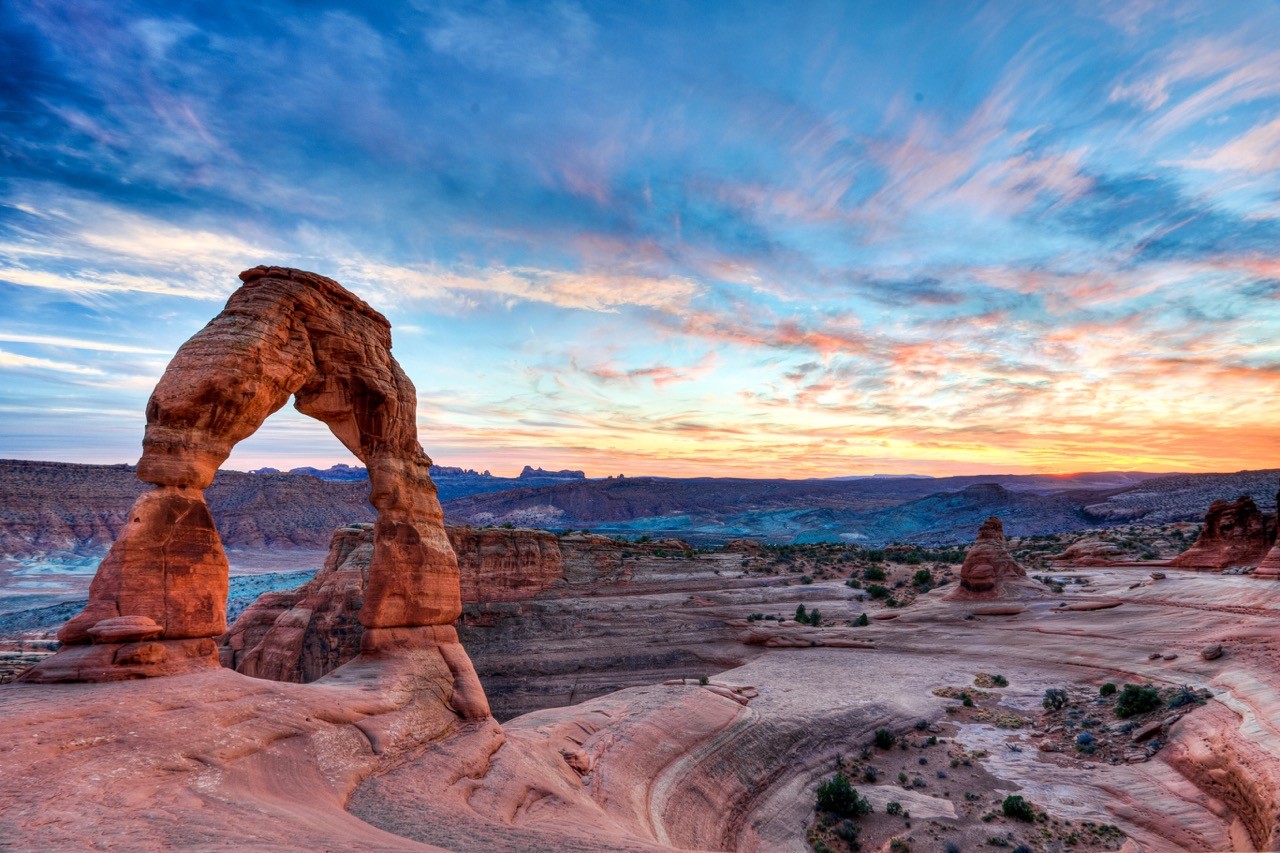
In a time when even the guardians of our most precious places are told to remain apolitical, we on an individual level must all do more.
Humanity’s darkest acts – genocide, colonisation, slavery – usually happen over the course of decades, hidden beneath a guise of normalcy. There are no flashing danger signs or blood red warning flags, rather an insidious conquest of popular opinion. Climate change happens on an even longer time frame and clearly we find it hard to care about next century.
There are seven billion humans on earth. We hold human life dear – and dear it is – but the planet and its preservation is more important. Biodiversity is bigger than us and we have an obligation to preserve reference points of pre-human environments.
Basic education, literacy, democracy and vaccination may all be improving and for humans this could be the best of times, but for everything else it could well be the worst.
